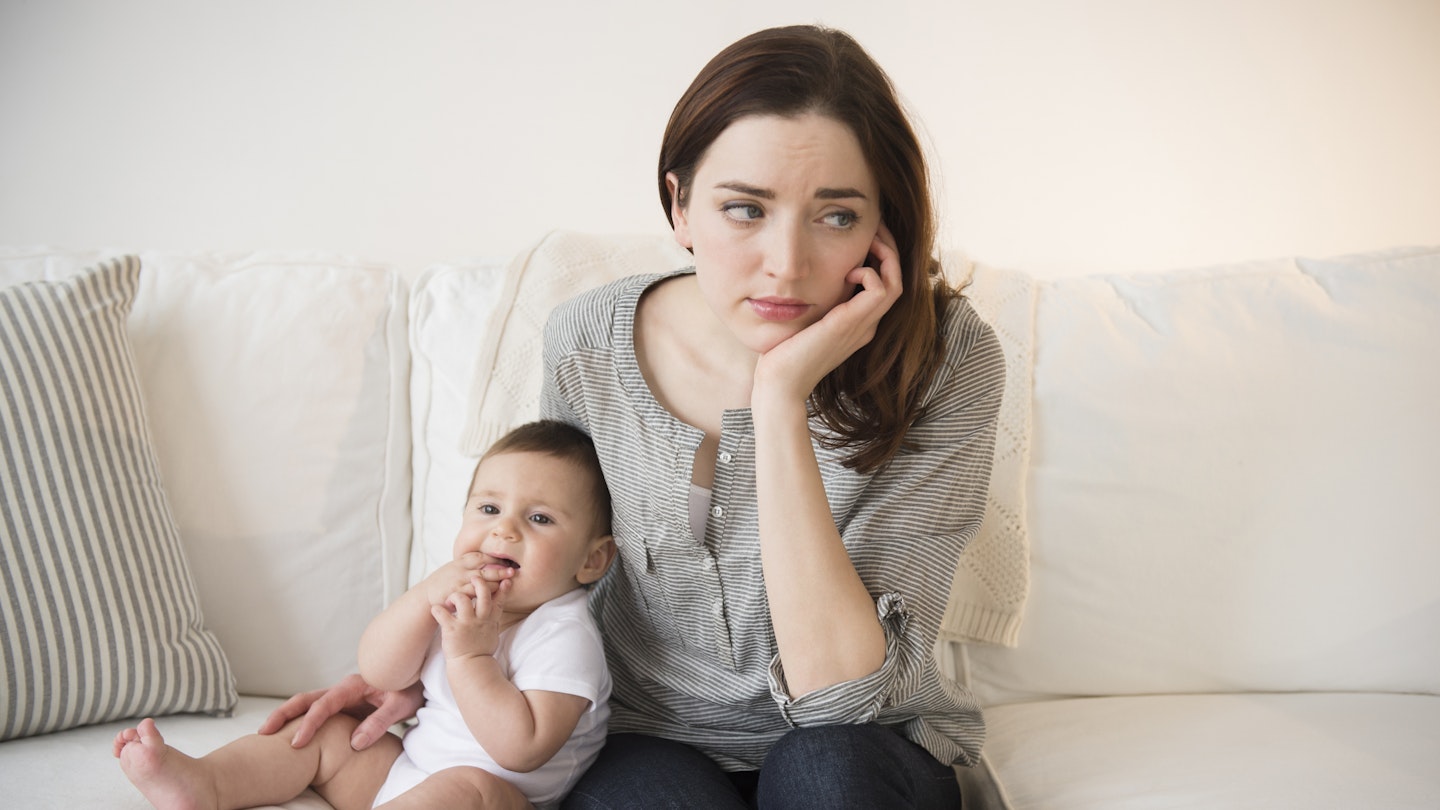Unexplained Secondary Infertility affects millions of women every year - so why does no one talk about it? Here's everything you need to know, from its causes to how to treat it...
You’ve had a baby, so you’re obviously fertile… right? Wrong. Like Kim Kardashian and Emmerdale actress Lucy Pargeter, more women are being diagnosed with unexplained secondary infertility (we say ‘diagnosed’ loosely).
But what is it? How can it be treated? And will you ever be able to conceieve again?
We spoke to experts and women who have been diagnosed with unexplained secondary infertilty to find out. Here's everything you need to know...
What is unexplained secondary infertility?

If you’ve already got a child but have been trying to conceive again for more than a year, you are classed as having secondary infertility. There are a handful of tests available to see why this might be; these include a blood test to check hormone levels and see whether you’re ovulating, a pelvic scan to check your womb is healthy and a fallopian tube test to check for blockages. If these all come back clear, you have ‘unexplained’ secondary infertility.
How many women are affected by unexplained secondary infertility?

Secondary infertility remains a bit of a taboo. Not many women talk openly about it, which can make it more difficult to deal with. Where support and understanding is available for those suffering with primary infertility (women who don’t have any children), it’s a different story for those who already have a child.
Statistics show that 5% of mothers trying for another baby will experience secondary infertility. While most will uncover a medical reason for why they're struggling, for one in four it will remain unexplained.
Studies suggest that 80% of people trying for a baby will get pregnant within two years; the remaining 20%, may well they face decades of trying.
What are the causes of secondary infertility?

One explanation is that women are leaving it too late to start a family, making sure they get their career in order, get on the housing ladder and settle down with a partner before they go into baby-making mode.
“The increasing prevalence of unexplained secondary infertility has been found to be related to age," says Dr Valentine Akande, Lead Consultant at Bristol Centre for Reproductive Medicine. "The older one is, the higher the likelihood of unexplained infertility. This suggests that whilst all tests are normal it is age that is having an effect on their chances of conception and it is more so because people are tending to delay having a child for occupation and social reasons.”
Studies show that fertility declines rapidly from the age of 35, with the quantity and quality of a woman’s eggs diminishing. Weight gain and stress can also impact fertility - and any woman who’s had a baby can attest that they often go hand in hand with childrearing!
Unexplained secondary infertility: A semi-charmed life

“After conceiving my first son within a week, I’ve now entered my third year of trying for baby number two," said mum-of-one Laura Williams. "Every test I’ve had has come back ‘all clear’. We’ve tried everything you can think of cutting down alcohol, healthy eating, doing more exercise (losing over two stone in the process), taking extra folic acid, going on sabbatical from my stressful job and taking a relaxing holiday, trying to ‘just forget about it’. Still no baby. There’s nothing to say it won’t happen, but there’s nothing to say it will. I’m living in constant limbo."
Fertility Network UK spokesman Catherine Hill added: “Just because you have a child doesn't mean you can switch off the longing to have another baby, but there is often a sense of guilt about this – a feeling that you should simply be grateful for the child you have when others are still trying for a first.
“Often, there can be the added pressure of existing children asking why they can’t have a brother or a sister. This can exacerbate the emotional impact felt when trying for a second baby: not only is there the pain and longing for another child, there is the feeling of guilt that you can’t provide a brother or sister and that your only child may be missing out.“
Unexplained secondary infertility: Where to turn for help?

The NHS in the UK will only fund further fertility investigations and treatment for women who do not already have a child; if you want to go down the IVF route for secondary infertility then you’ll have to fund it yourself and you’re looking at thousands of pounds.
Unfortunately, the only thing in the doctor’s armoury is to offer advice on healthy living, with those overused words ‘just keep trying’.
Laura, 34, added: "It is really hard to come to terms with the fact that, no matter what you do, your body will not give you what you so desperately want. As a mum in your 30s, you're surrounded by people with babies and toddlers and it can feel so isolating being the only one with one child. There's just no escaping the heartache."
As with most things these days, there are online support groups dedicated to secondary infertility which help people suffering with it feel less alone. More information is available here.
Have you suffered from unexplained secondary infertility? If so, we'd love to hear your stories. Get in touch on Facebook or Twitter
READ MORE...
26 women struggling with infertility share their biggest secrets, hopes, and fears
New pregnancy jab 'revives ovaries' helps infertile women to conceive
